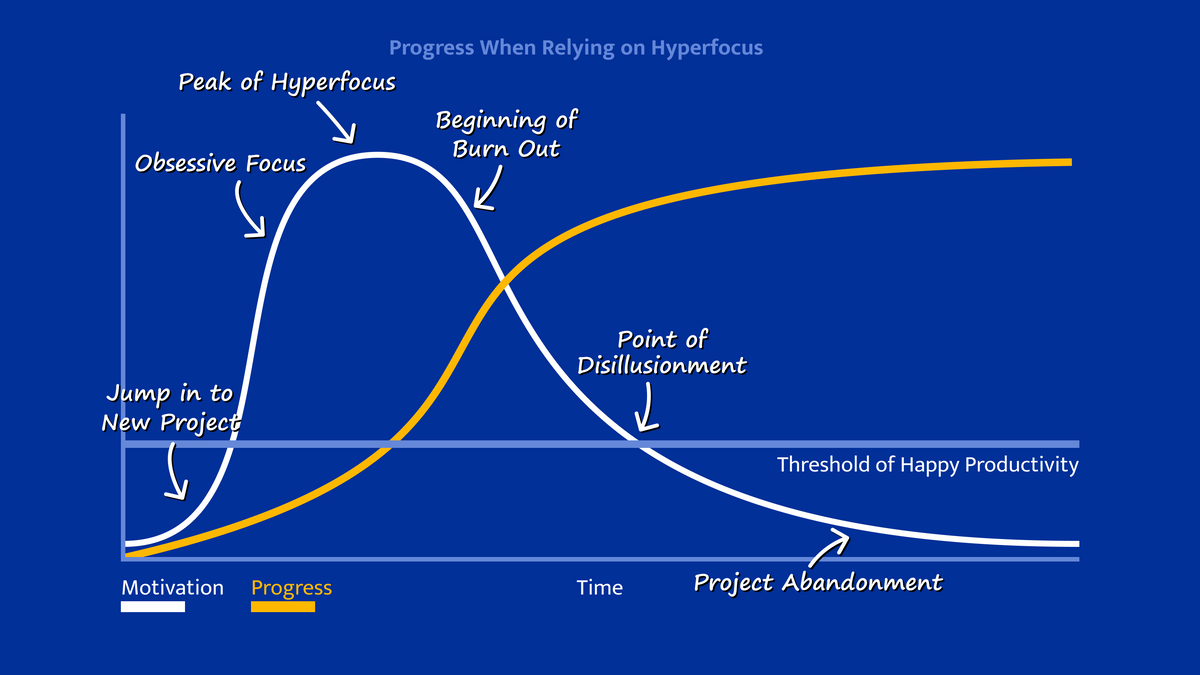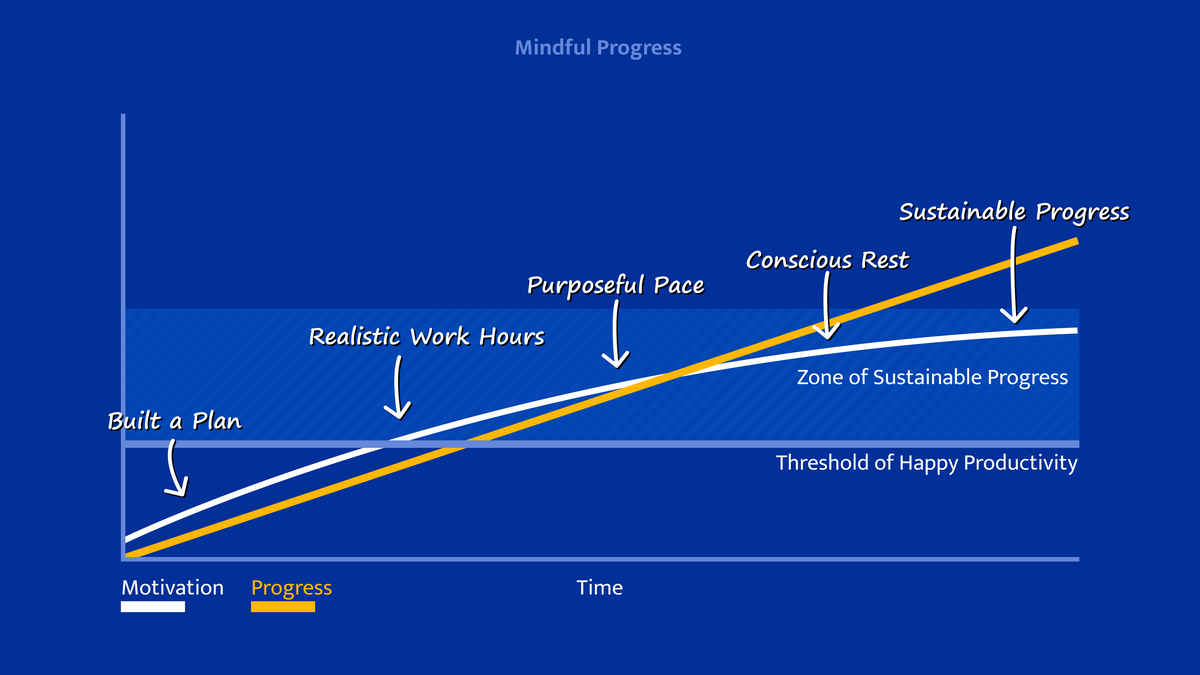- Published on
You might not have a motivation problem
- Authors
- Name
- Robert Merki
- @robmerki
ADHD gives us frequent bursts of hyperfocus. To outsiders, this just looks like we're very motivated. We work all weekend on a project while forgetting to eat or sleep. Almost everyone has some periods of hyperfocus, but they're far more common with ADHD.
Hyperfocus
I always assumed hyperfocus was a good thing. I was able to learn new skills and build things at a furious pace. High productivity feels good. I suspect this is why some people call ADHD a "superpower".
Burst of hyperfocus never last more than a weekend or two. I would inevitably burn out and abandon whatever project I was obsessed with. I explained my sudden loss of interest in the following ways:
- I got lazy
- I wasn't passionate about this project
- I can't "complete things"
- I have a "procrastination" problem
- I get distracted easily
None of these are true!
The truth is that I kept burning myself out with unsustainable, intense periods of work. I assumed my "motivation" was the problem, but it was my work habits.
Sustainable Motivation
Sustainable motivation feels like you're "kind of hungry".
You should work on a project because it's interesting and you enjoy the work, not because you have acquired a magical "passion" that's finally rescued you from a productivity abyss.
Being "kind of hungry" means that you get slightly satisfied when you work on it. The zeitgeist suggests that ideas are only valid if the founder/creator/artist goes into an obsessive manic phase to work on it.
If that was the solution, then I would have dozens of highly polished, fully complete side projects to show off by now. But I don't.
Find something that makes you feel "kind of hungry", and then do consistently. Two months of steady, healthy progress is far more valuable than two weekends of obsession. If you feel yourself getting obsessed, stop.
Use your hyperfocused state to write down notes, do a few hours of work, and then go take a break. If you're truly motivated to work on something, you'll be back tomorrow.
Here's a few graphs to explain it:


